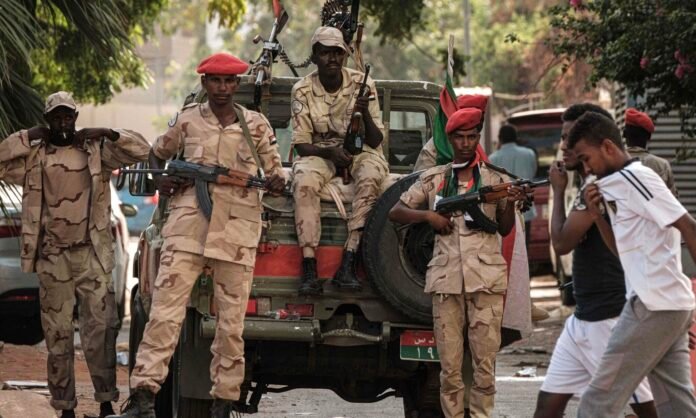Sudan’s paramilitary Rapid Support Forces (RSF) announced on Sunday that they had taken control of the army headquarters in al-Fashir, the Sudanese army’s final stronghold in the Darfur region in western Sudan.
A video released by the RSF showed its fighters celebrating in front of a sign marking the army’s Sixth Infantry Division base. The Sudanese army has not yet issued a statement on the situation.
The reported capture of al-Fashir marks a major milestone for the RSF and could accelerate the effective partition of Sudan, allowing the paramilitary group to consolidate its dominance across Darfur. The RSF has already declared the region the base of a rival administration formed earlier this year.
18-Month Siege and Fears of Ethnic Violence
The RSF had besieged al-Fashir, the capital of North Darfur state, for the past 18 months amid ongoing battles with the army, allied former rebels, and local militias. Activists have warned that an RSF takeover could trigger ethnic attacks, similar to those reported after the group captured the Zamzam camp to the south.
The siege has devastated the city’s population, with roughly 250,000 residents in western al-Fashir facing widespread starvation amid relentless drone and artillery strikes. Due to a prolonged communications blackout, residents have relied on Starlink terminals for limited internet access.
UN Reports Crimes Against Humanity
Last month, a United Nations–mandated mission accused the RSF of committing multiple crimes against humanity during the siege of al-Fashir. The Sudanese army has also been implicated in alleged war crimes.
Although the RSF recently claimed it was allowing civilians and surrendering soldiers to leave the city safely, escapees have reported robberies, sexual assaults, and killings by RSF troops along evacuation routes.
Meanwhile, the Popular Resistance — local fighters aligned with the army — stated that they continue to resist the RSF, insisting that the fall of the army base does not signify the complete capture of the city.
War’s Widening Impact
The conflict between Sudan’s army and the RSF erupted in April 2023 after tensions over integrating their forces during a planned transition to democracy. The war has since displaced millions, left half of Sudan’s population facing hunger, and sparked the spread of disease across the country.
Over the weekend, the United States hosted officials from the United Arab Emirates, Egypt, and Saudi Arabia to discuss a potential peace initiative. Sudan’s Foreign Ministry confirmed that its representatives were in Washington for bilateral talks, but the army-led Sovereign Council denied reports of indirect negotiations between the two warring factions.
Peter Obi Says Internet Fraudsters Are Talented Youths Who Need Guidance, Not Condemnation
Source:Africa Publicity








